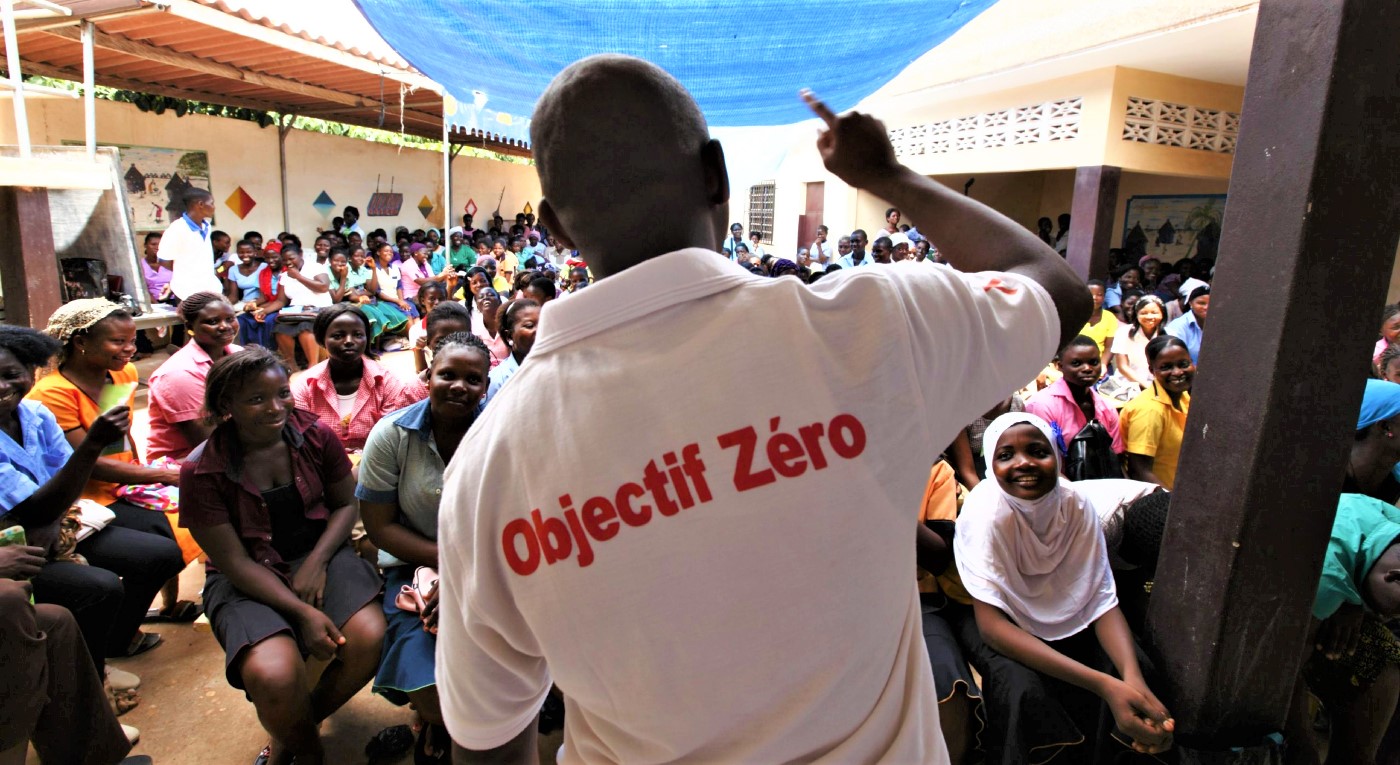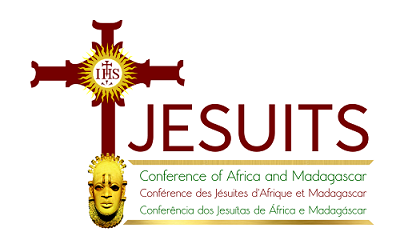Equalise to address inequalities end aids and promote lasting wellbeing for all

A Message from the Jesuit Conference of Africa and Madagascar (JCAM) on World AIDS Day, 1st December 2022
A voice of the affected:
“Before I became a beneficiary of Service Yezu Mwiza (the healthcare project of the Society of Jesus based in Burundi), it was hard to buy even paracetamol. I felt stigmatised because I wondered what others thought of me and my HIV status. Now, my life has changed because of different healthcare services from SYM. The mobile clinic service has shortened the long distance I used to travel to get medication. Above all, I even own a goat, which I have been dreaming of since, whose proceeds help me to cover the basic needs. I feel reborn and safe. I work hard to improve both my well-being and that of one of my children who is also infected with HIV.” (Odette, SYM, 2022).
The annual World AIDS Day unites the world in solidarity to support people and communities infected and affected, appreciate efforts to end AIDS and remember people lost to AIDS-related illnesses. This year’s theme, “equalise,” invites the global community to reflect deeply, listen attentively and take action to engender equity in the context of HIV and AIDS. For Odette and for the over 25 million people living with HIV in Africa, what could equalise mean? Odette’s story reveals the weight of stigma, the pain of living in abject poverty and the frustrations of inaccessible healthcare services for HIV treatment, testing and prevention.
From the UNAIDS Report 2022, we know that AIDS took one life every minute, on average, in 2021, with 650,000 AIDS deaths, despite the existence of effective HIV treatment and tools to prevent, detect and treat opportunistic infections. The report shows that every day 4,000 people (among them 1,100 young people aged 15 to 24 years) become infected with HIV. New infections occurred disproportionately among young women and adolescent girls compared to adolescent boys and young men in Sub-Saharan Africa. The report predicts that if the current trends continue, 1.2 million people will be newly infected with HIV in 2025, three times more than the target of 370,000 new infections.
UNAIDS rightly observes that this situation is occurring against the backdrop of marked inequalities within and between countries, which obviously are stalling progress in the global response to HIV/AIDS, thus further widening those inequalities.
Jesuits in Africa and Madagascar have journeyed with the affected and the infected for the last 20 years under the auspices of the African Jesuit AIDS Network (AJAN). We hear the call to action of equalisation. In the spirit of Ubuntu, we believe that if one member of our family is sick or vulnerable, the health of all is compromised. If equalisation implies leaving no one behind, then Ubuntu challenges us to honestly examine the dynamics of social relationships where the effects of these inequalities play out most concretely. The multiple spaces of inequalities call us to the practice of radical solidarity. Pope Francis explains that solidarity is not an abstract notion; rather, it
finds concrete expression in service, which can take a variety of forms in an effort to care for others. And service in great part means ‘caring for vulnerability, for the vulnerable members of our families, our society, our people’. In offering such service, individuals learn to ‘set aside their own wishes and desires, their pursuit of power, before the concrete gaze of those who are most vulnerable… Service always looks at their faces, touches their flesh, senses their closeness and even, in some cases, ‘suffers’ that closeness and tries to help them. Service is never ideological, for we do not serve ideas, we serve people.’ (Fratelli tutti, no. 115).
The testimony by Odette is a prophetic reminder that it is still possible for all of us to get the response back on track, while ensuring that there is equality and solidarity among all leaders when it comes to taking bold national and local actions to protect the vulnerable population against HIV and AIDS. As Pope Francis declared in his message for the World Day of the Sick (2020), “it is a matter of social injustice that many people do not have access to adequate healthcare, especially those around the world living in poverty.” Now is the time to take audacious measures to ensure availability, equality and sustainability of services to vulnerable and marginalised people, and to eliminate all forms of stigma.
I am grateful for the exemplary ministry of compassion, care and justice of the African Jesuit AIDS Network (AJAN) and all the field projects in the Jesuit provinces/region of Africa. Our service to communities affected by HIV attests to our conviction that it takes the efforts, willingness and openness of every person in all sectors of the society, in the spirit of justice, to ensure that the AIDS epidemic is eradicated. We will continue to highlight inequalities that deface the dignity and quality of life of people affected and infected by HIV and advocate for requisite actions to address them.
Also, we renew our commitment to offer a more holistic intervention that promotes health and well-being of communities and accompanies young people to adopt responsible behaviour. We do this without leaving anyone behind and in partnership with international efforts in the common fight for justice and equality for those living with HIV and for attaining the goal of a HIV-free world.
Let me end with the inspiring words of the Superior General of the Society of Jesus (Jesuits), Fr. Arturo Sosa:
“The path we seek to follow with the poor is one that promotes social justice and the change of economic, political, and social structures that generate injustice; this path is a necessary dimension of the reconciliation of individuals, peoples, and their cultures with one another, with nature, and with God.” (19 February 2019).
May God, through the intercession of the Blessed Anuarite Nengapeta, model of young people whose memorial we celebrate today, grant success to the work of our hands to change economic, political, and social structures in order to engender equality, solidarity and justice for all women, men and children affected and infected by HIV.
Yours in Christ’s mission,
Agbonkhianmeghe E. Orobator SJ
President, Jesuit Conference of Africa and Madagascar (JCAM)
Statement in French {HERE}
